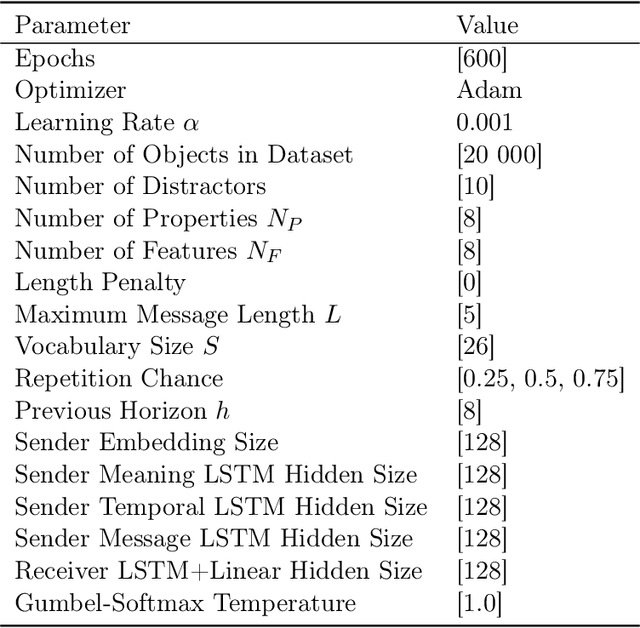On Temporal References in Emergent Communication
Paper and Code
Oct 10, 2023



As humans, we use linguistic elements referencing time, such as before or tomorrow, to easily share past experiences and future predictions. While temporal aspects of the language have been considered in computational linguistics, no such exploration has been done within the field of emergent communication. We research this gap, providing the first reported temporal vocabulary within emergent communication literature. Our experimental analysis shows that a different agent architecture is sufficient for the natural emergence of temporal references, and that no additional losses are necessary. Our readily transferable architectural insights provide the basis for the incorporation of temporal referencing into other emergent communication environments.
 Add to Chrome
Add to Chrome Add to Firefox
Add to Firefox Add to Edge
Add to Edge